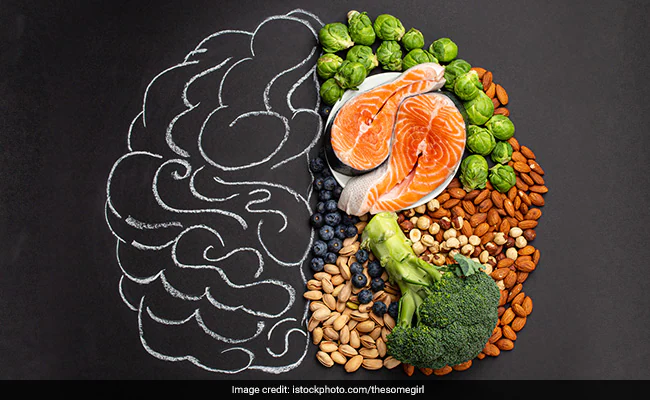They say “Junk food rots your brain.” Is it true? Can the foods you eat damage your gray matter?
Without a doubt, yes, it is very possible!
That’s because consistently consuming poor-quality foods can actually injure your hypothalamus—the area of your brain that regulates your appetite, energy expenditure, sleep, emotions, and even sex drive.
This can set off a cascade of nasty consequences that accelerate your rate of cognitive decline. And who needs their brain to age faster?
The good news: By understanding how and why certain foods mess with your mind, you’ll have the knowledge to keep your brain rot-free for life. I’ll walk you through the fascinating science, and also share what I personally eat to stay sharp, focused, and as mentally fit in my 60s as I was in my 20s.
The Problem with Junk Foods
When people talk about junk foods, they’re essentially referring to “ultra-processed” foods. These are foods that have gone through a series of industrial processes that strip away nutrients and are loaded with some preternatural combination of sugar, starch, fat (particularly the bad kind, such as trans fats), sodium, and chemical additives (many of which have been banned in other countries for years, while being allowed in the US to this day).
All this processing serves a specific purpose: to enhance flavor and improve texture—and make these foods nearly impossible to stop eating. This isn’t in the interest of your health—it’s in the interest of increasing product sales. (Processing also extends shelf life, another win for the food manufacturer.)
And clearly, it’s working: The average American consumes more than 57% of their daily calories from ultra-processed foods. And those who are “average” consume about 22 pounds, that’s right, 22 pounds of chemical food additives a year.
What’s more, it’s well-documented that ultra-processed foods drive people to overeat. In fact, a recent NIH study found that people automatically ate 500 more calories a day when they ate a diet of ultra-processed foods compared to minimally-processed foods.
This is Where Your Brain Comes in
Research suggests that chronic overeating damages brain neurons in the hypothalamus. When this happens, your body goes into fix-it mode, sending in a biological S.W.A.T. team to repair the injury. This temporarily increases inflammation to the area, just like the soreness you feel for a couple of days when you accidentally cut yourself with a paring knife. That’s how your body heals. Problems arise, though, when you keep damaging the same area over and over by eating lots of ultra-processed foods. It’s like poking an open wound with a pointy stick. The inflammation—known as “hypothalamic inflammation”—doesn’t go away.
Why is This so Bad?
Hypothalamic inflammation seems to alter how your body responds to appetite and hunger-regulating hormones, specifically by increasing both ghrelin—a hormone that stimulates appetite—and your resistance to leptin, a hormone that signals fullness. (The greater your leptin resistance, the more your brain ignores its message that you’ve had enough to eat.)
That’s a double-whammy that triggers a vicious cycle: You’re now programmed to overeat even more, exacerbating hypothalamic inflammation. (You’re now poking the wound with two pointy sticks.)
It Gets Worse
Ultra-processed foods have also been shown to negatively affect your microbiome, creating an unhealthy bacterial environment in your gut. (The “bad bugs,” not the “good bugs,” are running things.)
What’s that have to do with your brain? Your gut and brain are constantly chatting with one another. (This communication pathway is called the “gut-brain axis.”) And the health status of one has profound effects on the other.
Guess what can happen when your gut isn’t healthy? Two words: hypothalamic inflammation. (Now we’re up to three pointy sticks.)
How Does All This Impact You Long Term?
The research is only catching up, but it’s building quickly. For example: In an 8-year study, investigators discovered that those consuming more ultra-processed foods saw a faster decline in overall cognitive and executive function. And a study of more than 800,000 people found a notable link between ultra-processed food intake and increased risk of dementia.
And in case it wasn’t clear, the effect of ultra-processed foods on your brain—and your subsequent eating behaviors—has a downstream effect on just about every aspect of your health and longevity.
In a recent study, scientists determined that ultra-processed food consumption is linked to more than 30 harmful conditions, including obesity, type 2 diabetes, heart disease, anxiety, depression, and death from any cause.
The Advice Here Should be Obvious
You want to avoid ultra-processed foods and strive to eat a minimally processed, plant-rich, whole-food diet.
This can help you naturally eat less and, as weird as it sounds, literally avoid brain damage. By default, this approach also ensures you consume a healthy amount of all the foods that can actually enhance both your brain and gut health.
Even small changes can help: One recent study found that swapping out just 10% of ultra-processed foods in your diet with an equal portion of unprocessed or minimally processed alternatives, cuts your risk of dementia by 17%. (From there, keep going for even greater benefits.)
What to Eat for Brain Health
Here’s what I tell my patients (and yes, I follow this advice myself)—load up on fiber-rich plant foods—veggies, fruits, nuts, seeds, whole grains, and legumes—foods high in prebiotics such as avocados, artichokes, asparagus, berries, peas, chia seeds, and pistachios.
Next, embrace fermented foods like yogurt (unsweetened goat or sheep is the best), kefir, sauerkraut, and kimchi. These are packed with probiotics—friendly bacteria that populate your gut and keep the bad guys in check. (Remember: What’s good for your gut is good for your brain.)
And don’t forget polyphenol-rich foods like berries, dark chocolate, and green tea, which have been shown to boost cognition and memory. (They also taste delicious.)

